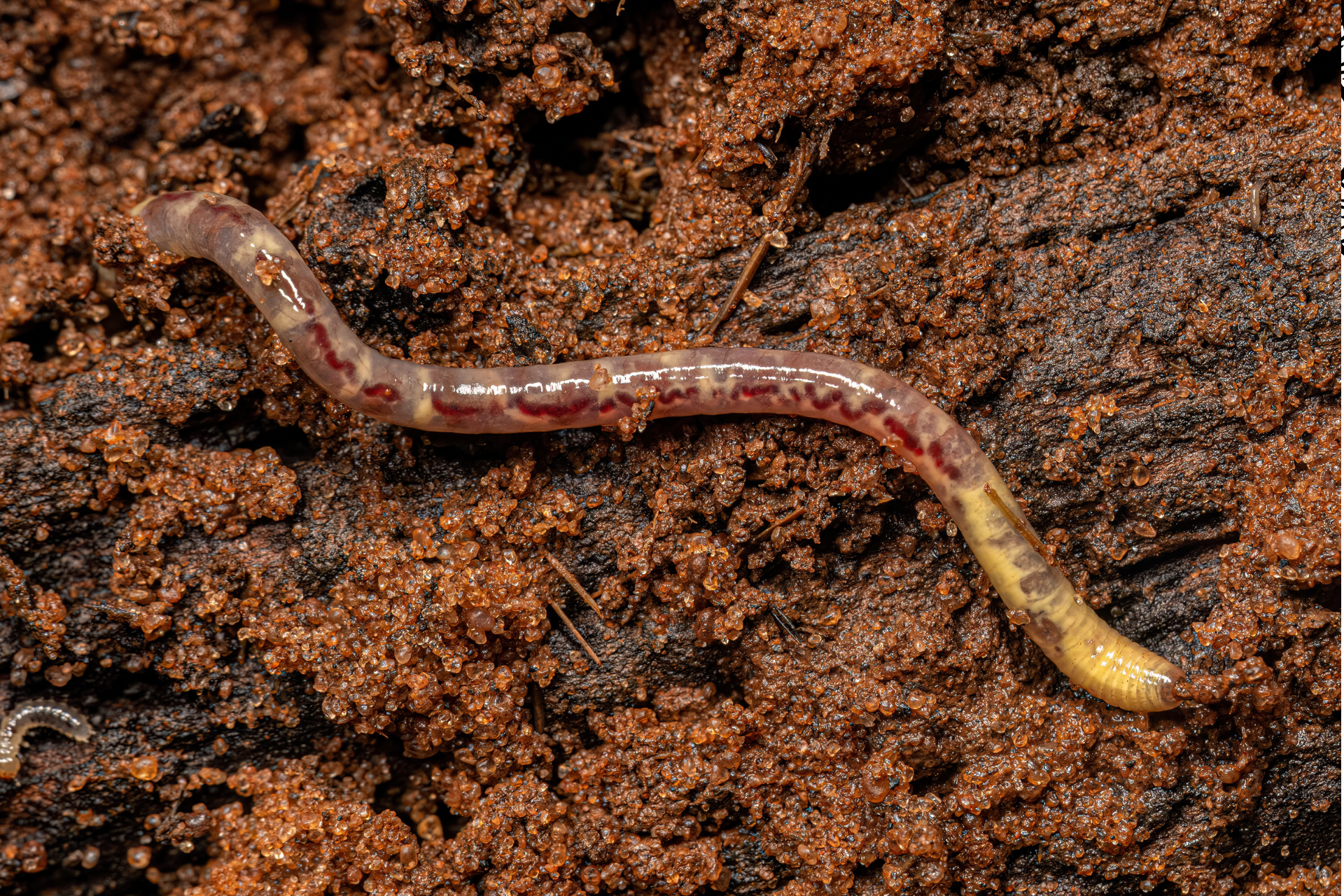Earthworms naturally aerate the soil, improve water retention, and enhance the breakdown of organic matter into nutrient-rich humus.
If your garden lacks a healthy population of earthworms, your soil might be missing out on one of nature’s best free gardening helpers.
In this post, we’ll explore four effective strategies to attract earthworms to your garden and keep them thriving for the long term.
With the right approach, you can boost your soil’s health, enhance plant growth, and promote a self-sustaining ecosystem.
One of the most powerful ways to attract earthworms to your garden is by enriching the soil with organic matter.
Earthworms feed on decomposing organic materials such as leaves, grass clippings, and compost.
By providing a constant source of organic matter, you create an inviting environment where earthworms can thrive.
🔹 Composting for Earthworms
Adding compost to your soil is one of the easiest ways to attract earthworms.
Compost provides essential nutrients and maintains soil moisture, which earthworms love.
It also enhances soil structure, making it easier for earthworms to burrow and move around.
In addition to compost, mulching with organic materials is another excellent way to attract earthworms.
Organic mulches like shredded leaves, straw, and grass clippings slowly decompose and provide a continuous food source for earthworms.
Using green manure and cover crops is an additional method to boost organic matter in the soil.
Earthworms are attracted to the roots of cover crops, which provide nourishment as they decay after being tilled into the soil.
Common cover crops like clover, buckwheat, and rye can be grown in off-seasons to maintain healthy soil.
Earthworms need moisture to survive, as they breathe through their skin.
Keeping your garden’s soil consistently moist is critical to attracting and retaining earthworms.
If your soil is too dry, earthworms will either die or move to more favorable locations.
Implement regular watering practices to ensure the soil remains moist, especially during dry spells or in hot climates.
However, be cautious of overwatering, as waterlogged soil can suffocate earthworms and drive them away.
🔹 Shade and Shelter
Earthworms are sensitive to sunlight and heat, so providing shaded areas or shelter can help retain moisture in the soil.
Plant ground covers or use mulch to protect the soil from the drying effects of the sun.
Creating Shade for Earthworms
🔸 Use plants with large leaves as natural ground covers to create shaded areas where moisture is conserved.
🔸 Mulching again comes into play here; a good layer of mulch will block direct sunlight, keeping the soil cool and moist.
🔹 Avoid Bare Soil
Bare soil dries out quickly and becomes uninviting for earthworms. Keeping the soil covered—whether with mulch, plants, or cover crops—ensures that the ground stays cool and retains moisture.
3. Avoid Harmful Chemicals and Toxins
Earthworms are sensitive to chemicals commonly found in synthetic fertilizers, herbicides, and pesticides.
To attract and maintain a healthy population of earthworms in your garden, it’s important to switch to organic and chemical-free gardening practices.
🔹 Chemical-Free Fertilization
Chemical fertilizers, especially those high in nitrogen, can cause soil acidity, which is harmful to earthworms.
Instead, opt for natural fertilizers like compost, manure, or organic granular fertilizers that won't disrupt the earthworm population.
Safe Fertilizers for Earthworms
🔸 Use compost tea or organic liquid fertilizers to add nutrients to your garden without harming earthworms.
🔸 Incorporate aged manure into your garden beds. Not only does this improve soil structure and fertility, but earthworms will feast on the partially decomposed matter.
🔹 Herbicide and Pesticide Alternatives
Herbicides and pesticides can kill earthworms directly or make the soil toxic for them to live in.
Insecticides can even disrupt the balance of beneficial insects that coexist with earthworms.
Eco-friendly Alternatives
🔸 Use companion planting to deter pests instead of chemical sprays. For example, planting marigolds can help repel harmful insects.
🔸 Introduce natural predators, such as ladybugs or birds, to control garden pests.
🔸 If you must use a pesticide, opt for organic or insecticidal soaps that are less toxic to soil organisms.
4. Improve Soil Structure and Aeration
Earthworms thrive in loose, well-aerated soils where they can easily tunnel through the ground.
If your soil is compacted or clay-heavy, it will deter earthworms from inhabiting your garden.
Improving soil structure is one of the most important steps in making your garden earthworm-friendly.
🔹 Aerating Your Soil
Earthworms love to create tunnels that aerate the soil, but in compacted soils, they can’t move easily.
You can help kick-start the aeration process by manually loosening the soil.
Soil Aeration Techniques
🔸 Use a garden fork or tiller to break up compacted soil, allowing for better air and water movement.
🔸 Incorporate coarse organic materials, such as straw or shredded bark, into heavy soils to improve aeration.
🔸 Avoid walking on garden beds, as foot traffic can compact the soil, making it difficult for earthworms to move through.
🔹 Soil pH and Earthworm Preferences
Earthworms prefer slightly acidic to neutral pH levels (around 6.0 to 7.0).
If your soil is too acidic or alkaline, it could deter earthworms from settling in your garden.
Conduct a soil test to determine if your soil pH is out of balance.
How to Adjust Soil pH
🔸 To raise soil pH (for acidic soils), use lime or wood ash.
🔸 To lower soil pH (for alkaline soils), incorporate sulfur or organic matter like pine needles.
Conclusion
Attracting earthworms to your garden is not only beneficial for soil health but also for your plants’ growth and productivity.
Earthworms are nature's gardeners, tirelessly working beneath the soil to improve its health and fertility.
By nurturing the conditions they need, you’ll reap the benefits of a healthier, more productive garden.
With time and patience, your garden will be teeming with these beneficial creatures, creating a vibrant, self-sustaining ecosystem that rewards you with rich, fertile soil year after year.













No comments:
Post a Comment